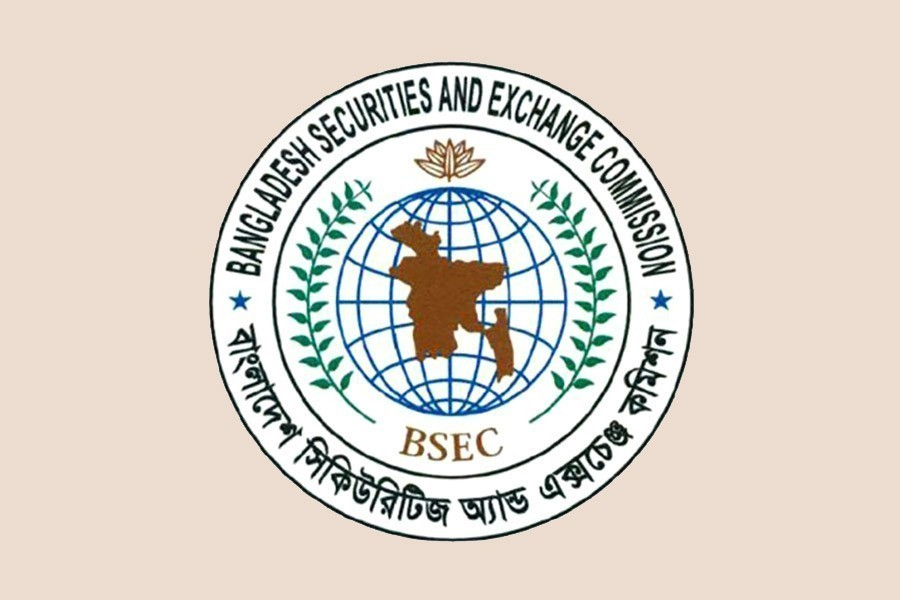Taskforce proposes 'oversight body' to shield market from influence of lobbyists

Published :
Updated :

 The taskforce of the country's capital market has recommended forming a seven-member oversight body to ensure accountability of the securities regulator and to keep the finance ministry from unnecessarily interfering in regulatory affairs.
The taskforce of the country's capital market has recommended forming a seven-member oversight body to ensure accountability of the securities regulator and to keep the finance ministry from unnecessarily interfering in regulatory affairs.
The oversight body may consist of the heads of the central bank and the revenue authority, secretary of the Financial Institutions Division (FID), and market experts, said the taskforce in a report submitted to the Bangladesh Securities and Exchange Commission (BSEC).
The taskforce insists that there should be a legal framework to be followed in the formation of the oversight body so that the regulator feels obligated to abide by its instructions and suggestions.
"This body will play a role like the boards of companies or organisations," said a member of the taskforce, preferring anonymity.
The recommendation for such a body came at a time when the political changeover has created scope for scrutiny of the decisions made by the previous commission and the ministry going against the interest of the market and investors and bypassing market intermediaries.
 For example, unitholders of mutual funds (MFs) are the decision makers on issues tied to the operations of such pooled funds. But in 2018, the securities regulator extended the tenures of close-ended MFs by 10 years following a decision of the Ministry of Finance (MoF).
For example, unitholders of mutual funds (MFs) are the decision makers on issues tied to the operations of such pooled funds. But in 2018, the securities regulator extended the tenures of close-ended MFs by 10 years following a decision of the Ministry of Finance (MoF).
Lobbying by unscrupulous fund managers influenced the ministry's decision.
Ultimately, the selective asset managers continued to earn management fees on a regular basis even if the funds managed by them were unable to secure any return for unitholders.
Subsequently, investors lost confidence in fund managers and pooled funds, which curtailed the sector's ability to grow.
The taskforce says it believes the ministry was not in a position to impose a decision without considering unitholders' interest.
Another example of undue influence is that the BSEC needs the ministry's approval before publishing its annual reports. The publication of the annual report is delayed almost every year as the securities regulator awaits the ministry's permission.
The oversight body would see whether a decision is good for the market or not. While it will help the BSEC function independently of the influence of the ministry, it is also expected to make the securities regulator accountable to the market, investors and the stakeholders.
The securities regulator earlier approved many IPO (initial public offering) proposals despite objections from the stock exchanges.
For example, the board of directors of the Dhaka Stock Exchange (DSE) requested the securities regulator not to approve the IPO proposal of Ring Shine Textiles. The regulator allowed the company to raise funds and eventually owners of the company left the country embezzling investors' money.
The imposition of floor price was another move that ruined the image of the market to foreign investors, resulting in remarkably low foreign investments at present.
The taskforce says the job of the BSEC should be limited to policy making and the decisions on market operation should be left to the bourses.
The ministry appoints commissioners and chairman to the BSEC. In many cases, non-qualified persons have been appointed by the ministry following lobbying by influential quarters.
According to the taskforce, the BSEC chairman and commissioners should be appointed through a search committee to be formed by the oversight body, which will decide which aspirant candidates will fit the role.
The ministry will also have a say in the functioning of the market as the oversight body will include the FID Secretary, said the taskforce member.
The need for legal framework
On the necessity of the legal framework, he gave a reference to an advisory body that the BSEC had but was never functional.
The 2010 stock market debacle prompted the securities regulator to form the "high profile" advisory committee to suggest changes in policies whenever needed.
The committee sat only once in 2014 after its formation in March 2011. The market has been through many crises since then but the BSEC did not hold the second meeting of the panel.
Alongside Dr. Mustafizur Rahman, distinguished fellow of the Centre for Policy Dialogue (CPD), and Dr. Zaidi Sattar, economist, the panel included BSEC chairman and members, and one representative of the Bank and Financial Institutions Division, one deputy governor of the Bangladesh Bank, and the president of the Federation of Bangladesh Chambers of Commerce and Industry (FBCCI).
The panel was ultimately dissolved, which makes a legal framework imperative for constituting the oversight body to make sure that it can operate as intended, said the taskforce member.
mufazzal.fe@gmail.com


 For all latest news, follow The Financial Express Google News channel.
For all latest news, follow The Financial Express Google News channel.